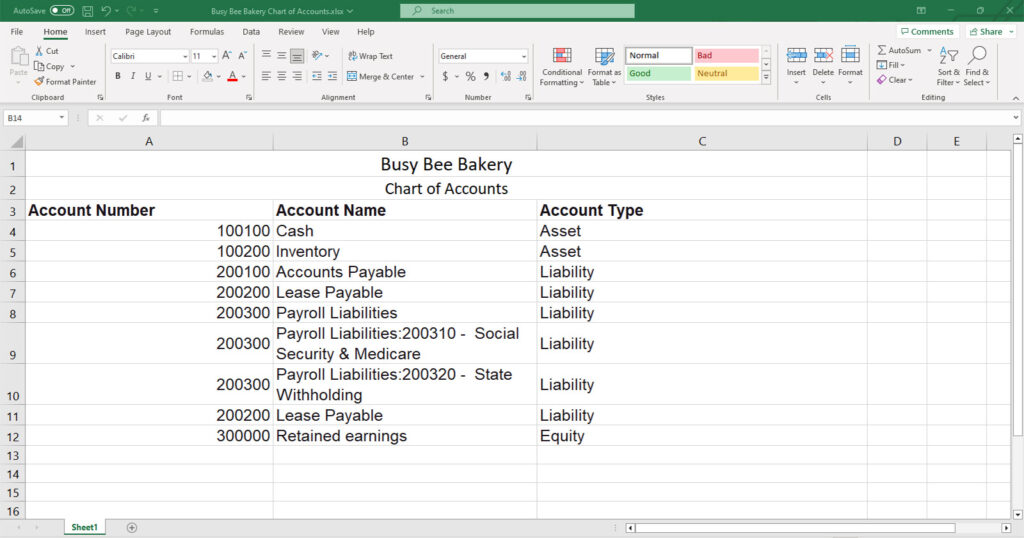The cash basis accounting is one of the two main accounting types. Just because it is commonly used doesn’t mean the cash basis should be preferred to accrual accounting. We will look at the cash basis, why businesses use it, some advantages and disadvantages, and which companies should use cash basis accounting.

What is Cash Basis Accounting? The Definition
Cash basis accounting records revenue and expenses when payments are received or paid.
Essentially this is saying the cash basis accounts for transactions as they happen, not when they are incurred or earned. We will break all this down in an easy-to-understand example in just a second so stay with us. It is all going to click and make sense.
Read More:
Accounting Debits vs Credits: The Difference for Beginners
The Cash Basis vs. the Accrual Basis
The biggest difference between the cash and the accrual basis of accounting is the way transactions are recognized. The cash basis focuses on cash changing hands.
The accrual basis focuses on when expenses are incurred and when income is earned. This makes the accrual basis a bit more complex than the cash basis.
How Businesses Use Cash Basis Accounting
There are tons of businesses using cash basis accounting. They use the cash basis to track their transactions for the year. It is a very straightforward accounting system and simple to understand.
Businesses are able to produce their financial statements while using the cash basis. This allows businesses to make decisions based on their cash basis financial statements as they would similarly make with accrual accounting.
What Are Some Examples of Companies that Use Cash Basis Accounting
In a single day, you probably interact with quite a few companies or small business owners that operate on the cash basis of accounting. Have you ever gone to a farmer’s market? How about having your grass cut by a lawn company? Maybe you’ve even hired a plumber or electrician.
The common thing between all these businesses is that they are great candidates for using the cash basis of accounting. Often they are privately owned and don’t have to comply with financial reporting standards for external shareholders. These small to medium-sized, non-complex businesses can use the cash basis of accounting which has some of its own advantages.
Read More:
T Accounting Examples – T Accounts for Beginners
Advantages and Disadvantages of Cash Basis Accounting
The advantages of cash basis of accounting include:
- Easy to implement
- Simple to understand
- Captures the financial transactions for the current year
- Can be cheaper than the accrual basis
- Less technical than accrual accounting
While there is a long list of advantages to the cash basis in accounting, there are also a few disadvantages.
- Doesn’t comply with GAAP
- Not acceptable to publicly traded companies
- Lacks some of the transparency of accrual-based accounting.
Are you starting to see which businesses can use cash basis accounting and why? Let’s keep breaking it down.
Why Do Some Businesses Use Cash Basis Accounting Instead Of Accrual Accounting?
This really goes back to the advantages and disadvantages of cash basis accounting. A small business or sole proprietor generally won’t go through the hassle of keeping accrual accounting books when that can be more expensive if they don’t have shareholders.
It also doesn’t get any easier than cash basis accounting. If you are a new business owner that wants to keep some accounting records but doesn’t need to apply accrual accounting then cash basis can be perfect!

Distinguishing Between Cash Basis and Accrual Basis of Accounting
How would you know if a company is using cash basis or accrual accounting? It’s actually pretty easy. You’ll need to take a look at their accounting books or financial statements. If you have the financial statements then it may clearly say “cash basis” on the financial statements. If it doesn’t another telltale sign you can look for is, maybe you guessed it, accruals.
Head to the balance sheet and see if you see accounts like accrued liabilities, accounts payable or accounts receivable. You will only see these under accrual basis accounting and not cash basis. Remember, the reason is because accrual accounting is based on when income is earned and expenses are incurred. Cash is based on payment and receipt.
An Example of Cash Basis Accounting: Beginner Friendly
Ok, it might be clearer if we look at an actual example of cash basis accounting. We will look at cash basis accounting from both a revenue and expense standpoint separately.
Let’s say Mike Scott owns a paper company and sells a box of paper for $100 to a customer on April 1st. He will record cash into his bank account for $100.
If Mike has to buy more paper to sell i.e. inventory for $50 on May 5th, he will record a credit to the cash account for $50.
Q: If he had $100 in his cash account before selling paper, how much does he have after selling paper and buying more inventory?
A: $150. $100 beginning + $100 cash received – $50 cash paid.
Does the Cash Basis Violate GAAP? Important to Know
It is extremely important to know that the cash basis of accounting isn’t compliant with Generally Accepted Accounting Principles (“GAAP”). The cash basis violates the matching principle because the cash basis is single-entry accounting. As you have seen, revenues and expenses add and subtract from the cash account.
Conversely, accrual-based accounting is GAAP compliant. Keep this in mind when choosing the cash basis if any stakeholders like a bank expect accrual-based financial statements or accounting records.
A Recap on the Cash Basis of Accounting
It may seem like a lot of information to process but you have got this! To drill it in a little bit more, let’s recap the important points on the cash basis of accounting:
- The cash basis of accounting records revenue and expenses when payments are received or paid.
- The cash basis is good for sole proprietors and small to medium-sized businesses.
- Using the cash basis in accounting is not GAAP compliant.
- The cash basis is relatively simple and inexpensive to implement.
Wrapping Up: The Cash Basis in Accounting
Some businesses will find that the cash basis of accounting is a perfectly acceptable basis of accounting. Others may be needing a bit more. Once you have gained your understanding of the cash basis above, you should be in a position to make that decision. Don’t forget to review the accrual basis as well before coming to a conclusion on which to use!



